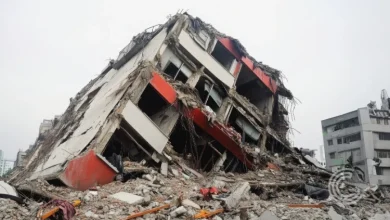Nigeria’s Tinubu Declares Emergency, Mass Police Recruitment Planned

Key Points:
- Nigeria President Tinubu formally declared a nationwide security emergency following a devastating wave of abductions, particularly targeting schools and worshippers
- The President has ordered the immediate recruitment of 50,000 additional police officers and authorized the military to expand its ranks to increase security presence nationwide
- In a crucial shift, police officers currently assigned to VIP protection duties will be withdrawn, retrained, and redeployed to high-risk conflict zones
Nigerian President Bola Ahmed Tinubu has declared a sweeping nationwide security emergency, responding decisively to a severe escalation of violence and mass kidnappings that have recently rocked the country.
The president immediately ordered a major expansion of both the police and army, recognizing that a decade of chronic Nigeria insecurity demands a comprehensive, boots-on-the-ground solution.
A Week of Crisis Spurs Drastic Action
The national emergency declaration was a direct response to a terrifying spike in criminal activity across multiple states. In a single week, assailants captured hundreds of people, including two dozen schoolgirls, 38 worshippers, and over 300 schoolchildren and teachers from a Catholic boarding school in Niger State. While some victims have been successfully rescued, the scale and boldness of the attacks have shaken public confidence.
“This is a national emergency, and we are responding by deploying more boots on the ground, especially in security-challenged areas,” Tinubu stated in a televised address, reported by Arab News.
These recent events are the latest, most brutal symptoms of a long-festering problem. Nigeria has been plagued by chronic Nigeria insecurity for years, driven by a complex mix of factors including the decade-long jihadist insurgency by Boko Haram and its offshoots in the North-East, and the widespread, financially motivated attacks by criminal gangs, often referred to as “bandits,” across the North-West and Central states.
The Mass Kidnapping Epidemic
The use of mass kidnappings as a lucrative criminal enterprise has become a horrifying trend since the infamous 2014 abduction of 276 Chibok schoolgirls by Boko Haram. Since then, thousands of kidnappings have occurred, with groups deliberately targeting soft, vulnerable locations like schools and religious centers.
The profitability of this “kidnapping for ransom” model has escalated the crisis, essentially turning abduction into a cottage industry. According to the National Bureau of Statistics, Nigerians paid an estimated $1.42 billion in ransoms from May 2023 to April 2024, demonstrating the vast financial incentive fueling these attacks, reported by The Soufan Center.
As Human Rights Watch noted, “These mass school kidnappings once again lay bare the deliberate targeting of students, teachers, and schools in Nigeria’s deteriorating security environment,” highlighting the government’s persistent failure to protect vulnerable communities.
Sweeping Measures to Mobilise Forces
President Tinubu’s declaration signals an urgent, comprehensive strategy to counter this pervasive Nigeria insecurity. The most immediate action is a massive recruitment drive: the Nigerian Police Force is authorized to hire 50,000 new officers, and the military will also expand its ranks. The National Youth Service Corps (NYSC) camps will be repurposed as temporary police training facilities to speed up the process.
Perhaps the most significant structural change is the order to withdraw police officers from VIP protection duties. The initiative seeks to free up thousands of trained personnel for core policing tasks, ensuring that security resources are concentrated in the areas where they are most critically needed.
Furthermore, the President directed the Department of State Services (DSS) to deploy and expand the recruitment of trained forest guards to actively flush out armed groups hiding in the vast, ungoverned forest areas that criminal elements often use as safe havens.
Calls for State Police and Ranching
Beyond the immediate military and police expansion, the President also called on the National Assembly to initiate a review of laws to permit states to establish their own police forces. This move addresses a long-standing debate in Nigeria, where centralized policing has often been criticized for failing to adequately address local security concerns.
In addition, the President pressed herder associations to embrace ranching and surrender illegal weapons. This directive targets the persistent, deadly farmer-herder conflicts that destabilize rural areas and contribute significantly to the overall Nigeria insecurity.
While the emergency measures are welcomed by many, the challenge now lies in the swift and efficient implementation of these reforms. The fate of hundreds of kidnapped citizens, and the future security of Africa’s most populous nation, rests on the success of this monumental and urgent declaration.



